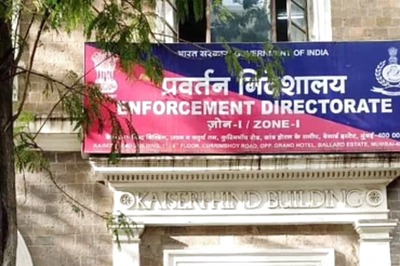
views
PUDUCHERRY: JIPMER will take the initiative for coming out with a population-based registry for Chronic Kidney diseases (CKD) for Puducherry, in association with the government, for prevention and management of the disease. JIPMER director Dr T S Ravikumar made this commitment at the World Kidney Day celebrations and symposium on preventive nephrology at JIPMER, organised by the department of nephrology on Tuesday. Speakers expressed the necessity for such a move as accurate estimates of the prevalence of CKD in India were not available. As per rough data from the Nephrology association of India it is estimated that 2,16,000 people in India develop end-stage renal failure (ESRF) annually and require dialysis to sustain life. Dr Ravikumar said that Puducherry being small, the task of having a registry could be easier and already had made indications to the government. This would give an indication of prevalence, patterns of case and standardisation of data which would enable in devising management patterns. With only 10 per cent of patients developing kidney failure being able to receive proper treatment on long term basis, speakers at the symposium said that the solution lay in reducing the burden through early detection, and preventing those with CKD to end stage renal failure. To make the treatment accessible to everyone with kidney failure, there was an urgent need to promote both living donor and deceased kidney transplant programme. Dr Rajiv Saran, associate director, University of Michigan Kidney Epidemiology and Cost Centre, Henry F Vaughan school of Public Health, Michigan, USA stressed on the need for screening and surveillance of risk groups that include obese people, diabetic, hypertension, people with a history of kidney stones and the relatives of ESRF for genetic links to the disease.Dr Georgi Abraham, consultant nephrologist, Madras Medical Mission, expressed the need to tailor the immuno supressive therapy after kidney transplant to reduce chances of death. He said that at present the kidney transplant programme was been primarily through living donor (close relatives) and the deceased donor transplant needs to be increased.




















Comments
0 comment